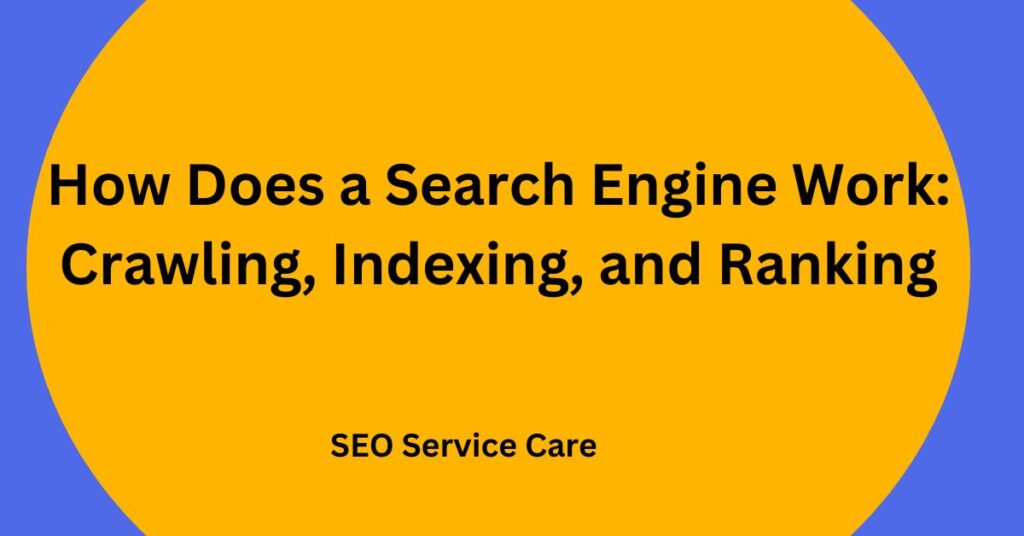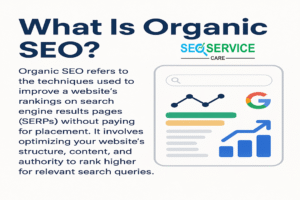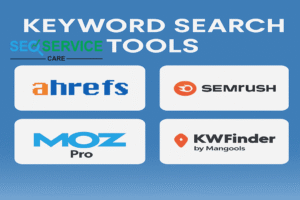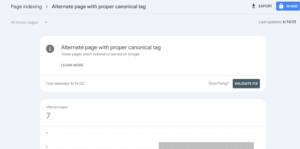Hey there! Ever wondered how search engines like Google work their magic to deliver the most relevant results to your queries? It’s a fascinating process involving three key steps: crawling, indexing, and ranking. I’ll break down these concepts in this guide to demystify how search engines operate. Let’s dive right in!
Crawling – The First Step
What is Crawling
“Crawling” refers to the automated process search engines use to explore and collect information from web pages across the internet.
Search engines like Google, Bing, and others employ specialized software programs called crawlers or spiders.
These crawlers start by visiting a list of known web addresses and then following links on those pages to discover new content.
They analyze the content and metadata (such as titles and descriptions) on each page they visit, indexing it for quick retrieval when users search for relevant information.
Continuous crawling updates search engine databases with the latest web content, enabling users worldwide to access information easily.
How Crawlers Work
Crawlers, also known as spiders or bots, are automated programs search engines use to browse the web systematically.
They start by fetching a few web pages and then following the links on those pages to discover new URLs. As they crawl, they analyze the content and metadata of each page, such as titles, headings, and text.
A massive database then indexes and stores this information for quick retrieval when a user performs a search.
Crawlers revisit pages periodically to check for updates or changes, ensuring search engine results remain current and relevant.
This continuous process enables search engines to provide users with up-to-date and comprehensive information from the web.
Challenges in Crawling
Crawling the web poses several challenges for search engine crawlers. One significant challenge is the sheer size of the web, which consists of billions of pages constantly changing and growing.
Crawlers must efficiently manage resources to navigate and process this vast data without overwhelming servers or exceeding bandwidth limits.
Another challenge is dealing with dynamic content generated by JavaScript or forms, which may require specialized handling to ensure all relevant content is indexed accurately.
Additionally, crawler traps, such as infinite loops or duplicate content, can divert resources and hinder efficient indexing.
Overcoming these challenges requires continuous optimization and adaptation of crawling algorithms to ensure thorough and reliable coverage of web content.
Indexing – Building the Library
What is Indexing?
Indexing is the process by which search engines organize and store information gathered from web pages during the crawling process.
Once a crawler fetches a web page, the search engine analyzes its content and metadata, such as titles, headings, and keywords. An index, a massive database, stores this analyzed information in a structured format.
The index lets the search engine quickly retrieve relevant pages in response to user queries.
Indexing ensures that search results are accurate and relevant, matching user search intents with the most appropriate web pages.
For more details on how indexing fits into the larger picture of optimizing your site, check out our technical SEO services.
The Indexing Process
The indexing process involves several key steps that search engines follow to organize and store information from web pages:
-
Crawling: Automated bots (crawlers) fetch web pages from the internet.
-
Parsing: We analyze pages to extract content and metadata (titles, headings, etc.).
-
Tokenization: We break down text content into tokens, which are words or phrases.
-
Indexing: We store tokens and their associated URLs in a searchable index.
-
Ranking: Algorithms evaluate and rank indexed pages based on relevance and other criteria.
-
Query Processing: When a user searches, the index is queried to retrieve relevant pages.
Importance of Fresh Content
Fresh content is critical for a variety of reasons, particularly in the context of search engine optimization (SEO) and user engagement:
-
SEO Benefits: Search engines prioritize fresh content in their algorithms, considering it a signal of relevance and quality.
-
User Engagement: Regular updates keep visitors returning to your site, encouraging higher engagement and interaction.
-
Authority Building: Consistently updated content establishes authority in your niche or industry.
-
Improved Rankings: Fresh content can improve search engine rankings, as it signals to search engines that your site is active and relevant.
-
Current Information: Provides users with up-to-date information, enhancing their experience and satisfaction.
Keeping content fresh demonstrates your commitment to providing value and staying current in your field, which can ultimately lead to increased traffic, visibility, and conversions on your website.
Ranking – Delivering the Best Results
What is Ranking?
Search engines use ranking to determine the order in which they display web pages in response to a user’s search query. When a user enters a search term or phrase, the search engine retrieves relevant pages from its index and ranks them based on various factors.
These factors typically include the relevance of the content to the search query, the quality and authority of the website, and other SEO considerations such as backlinks and user engagement metrics.
The ranking aims to present users with the most relevant and high-quality results that best match their search intent, providing a satisfactory search experience.
Ranking Factors
Search engines use ranking criteria to evaluate and determine the order of web pages in search results. These factors can vary depending on the search engine algorithms, but some common ranking factors are as follows:
-
Relevance: How closely the content matches the user’s search query.
-
Content Quality: Originality, depth, and usefulness of the content.
-
Keywords: Presence and appropriate use of relevant keywords throughout the content.
-
User Experience: Page load speed, mobile-friendliness, and intuitive navigation.
-
Backlinks: Quality and quantity of links from other reputable sites pointing to the page.
-
Domain Authority: Overall authority and trustworthiness of the website domain.
-
Social Signals: Engagement on social media platforms related to the content.
-
Freshness: How recently has the content been updated or published?
-
Page Structure: Proper use of headings, meta tags, and structured data to enhance readability and SEO.
Search engines continually refine their algorithms to prioritize pages that provide the best user experience and the most relevant information.
Understanding how google algorithms for SEO work is crucial for optimizing your content and improving your rankings.
Optimizing for these ranking factors can improve a page’s visibility and position in search engine results pages (SERPs).
Improving Your Rank
Improving your rank in search engine results involves several key strategies and tactics:
-
Keyword Optimization: Research and use relevant keywords throughout your content, including titles, headings, and meta tags.
-
Quality Content: Create valuable content that addresses your audience’s needs and interests.
-
SEO Best Practices: Follow on-page SEO techniques such as optimizing meta descriptions, using alt tags for images, and ensuring proper URL structure.
-
Mobile Optimization: Ensure your website is mobile-friendly and loads quickly on all devices.
-
Backlink Building: Acquire quality backlinks from reputable websites in your industry to build authority. For more information on how to get these valuable links, check out our branded backlinks service.
-
User Experience: Improve site navigation, usability, and overall user experience to reduce bounce rates and increase engagement.
-
Regular Updates: Publish fresh content regularly to demonstrate relevance and keep visitors returning.
-
Analytics and Monitoring: Use tools like Google Analytics to track performance, analyze trends, and make data-driven decisions to improve further.
By implementing these strategies consistently and monitoring their effectiveness, you can enhance your website’s visibility, attract more organic traffic, and improve your ranking in search engine results pages (SERPs).
If you need help with SEO ranking, SEO Service Care can help. You can contact us online or call +8801581-646452 today to speak with one of our experts directly!
Conclusion:
There you have it—a simplified look at how search engines work through crawling, indexing, and ranking. Understanding these processes can empower you to optimize your website and improve its visibility on search engines. Remember these steps, and you’ll be better equipped to navigate the digital landscape.
Frequently Asked Questions (FAQs):
What is a web crawler?
A web crawler, also known as a spider or bot, is an automated program that scans web pages to collect data for search engines.
How do search engines work?
Search engines use automated bots to crawl the web for content, index it in a database, and then rank it based on relevance and quality when users search for information.
How often does a search engine crawl my website?
Although the frequency can vary, crawling occurs more frequently on regularly updated websites.
Can I control which pages are crawled?
You can use a robots.txt file to instruct search engine crawlers which pages to exclude.
What happens if my site needs to be indexed?
If your site is indexed, it will appear in search engine results, making it easier for users to find.
Do backlinks affect my ranking?
Yes, backlinks significantly influence your ranking in search engine results. Search engines regard them as a strong signal of credibility and authority. Websites with higher-quality backlinks from reputable sources tend to rank higher because these links indicate that other sites find your content valuable enough to reference.






